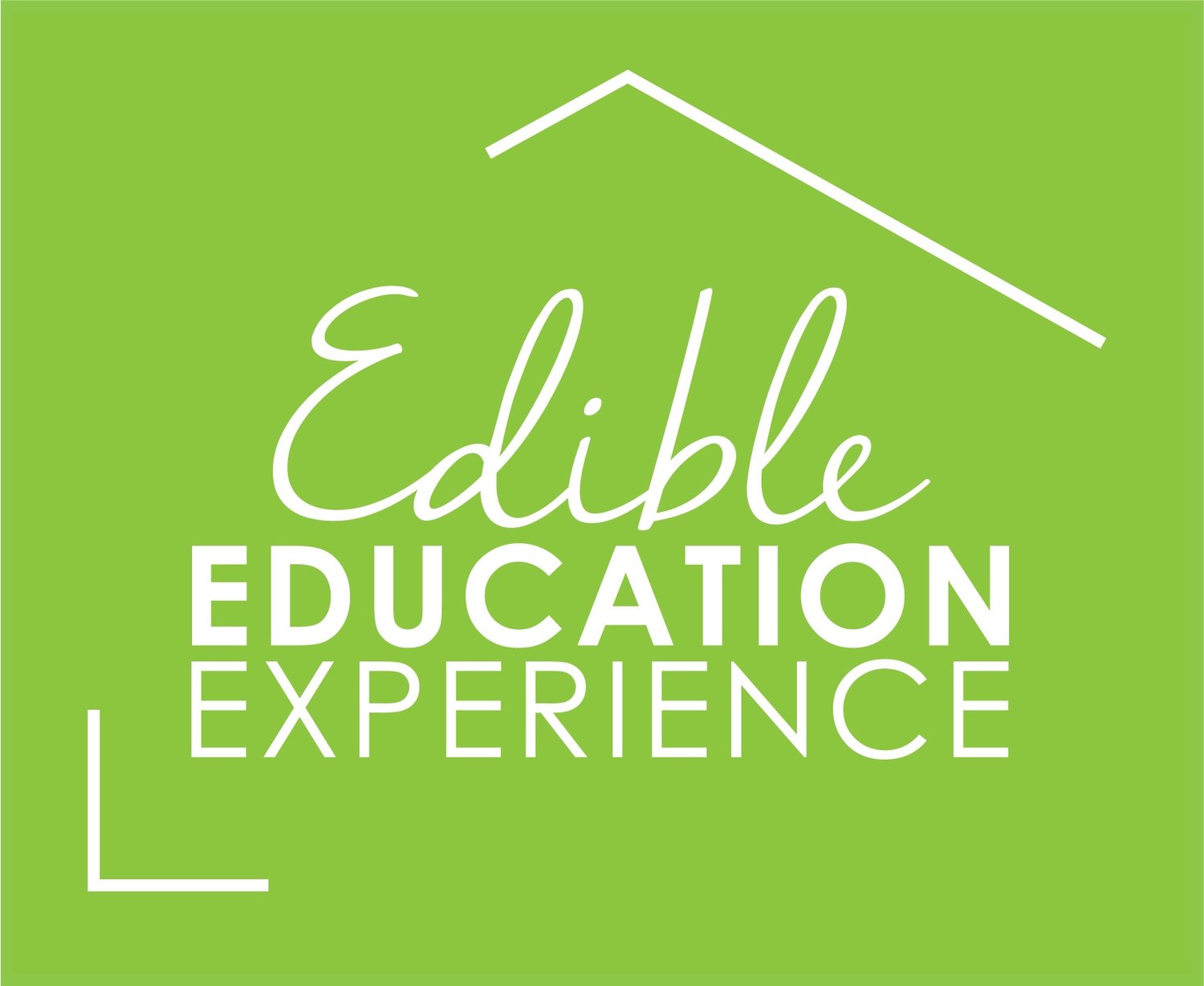by Sarah McKee, Culinary Educator Assistant & Volunteer Coordinator
Me (left) and Culinary Educator, Erica Asti (right) loved connecting with our students during this year’s Hybrid Virtual Seed-to-Table Summer Camps.
This year, our Seed-to-Table Summer Camp looked a lot different. Instead of our butcher block tables at the Kitchen House, campers gathered around their home computer screens.
In response to COVID-19, the Edible Education Experience team decided to offer what we called a “Hybrid Virtual Seed-to-Table Summer Camp”. This year, Campers and their families could come to the Culinary Garden for a socially distant, private garden tour to gather a harvest that would later be incorporated into the cooking portion of camp. The remainder of camp was hosted virtually from the Kitchen House via Zoom.
Through distance teaching, I’ve learned a lot about how to effectively create and implement culinary instruction, as well as how to sustain and engage our campers without even being in the room. Our hope is that through these tips, you’ll find some inspiration on how to keep your student(s) engaged and learning through this school year’s virtual learning options.
Here are my five biggest takeaways to share from my experience:
Simplify, Simplify, Simplify
Since our EEE team could not be in the same room as our campers, a large portion of the class involved a high level of self-direction from the kids. We found that by simplifying the recipes, it allowed for more time to devote to their questions and fostered an organic flow to the class.
It was important to give clear instructions that were easy to comprehend. Keeping in mind that a more simple structure can still allow for critical thinking and observation. This experience pushed me to be more concise and clear with how I delivered information to our campers.
Establish a Routine
Each day Hybrid Virtual Seed-to-Table Summer Camp started with playing an upbeat song as we welcomed the kids in the morning. The way we structured and operated our class also played into our routine: Each class included a brief culinary history lesson, spotlight of garden ingredients, review of planned recipes, plate final dishes and clean-up time. By the third day of camp, I noticed that most of the campers signed on early to listen to the welcome song, ready to get cooking, and had already familiarized themselves with the recipes for the day. My advice is to create a structure to class that works for you and stick to it. Your students will thank you and see that you are invested.
Garden Educator, Brad Jones, took on the added role of Chief Technology Officer and Moderator during our Hybrid Virtual Seed-to-Table Summer Camps.
Create Touch Points and Opportunities for Connection
Our campers miss the human connection, working with their friends, cultivated in the Kitchen House the most. It is important to create personalized touch points with kids. We created touch points through mediums like: e-mail, Zoom calls, chat box options, and social media to share messages and encourage interaction. Several of the campers families even submitted photos of their culinary masterpieces after finishing a week of virtual camp.
Make Time for Reflection
Maybe you are attempting to teach or learn virtually for the first time and are unsure how it’s going to work out. First, take this experience in stride and secondly, schedule time for yourself to reflect on how the class is going. Students should also be included in a reflection activity, to share what was meaningful to them in the day’s learning. Whether this is done virtually or offered in a follow-up email, I found this practice to be beneficial towards future programming and lesson planning.
Technology Errors will Happen
I consider myself pretty well-seasoned when it comes to distance learning. I have been a student in many online courses and participated in webinars. However, I found teaching a 2.5 hour Hybrid Virtual Summer Camp to be more involved than initially thought. I suggest preparing your space ahead of time and running several “dress rehearsals” before the first day of class. For our team, this involved getting proper headphones to improve the audio quality and an Ethernet cable to insure a more reliable, hard-wired internet connection. Even with our prep work, there were a few glitches with video quality. You just have to laugh it off and keep going. Practice makes perfect!
We missed having the kids in the Kitchen House this summer but the EEE team was able to create meaningful experiences for the campers that will never be forgotten. Thank you to our Garden Educator, Brad Jones, for adapting to the role as video moderator and to Chef Erica for her innovation in creating the culinary lesson plans.



